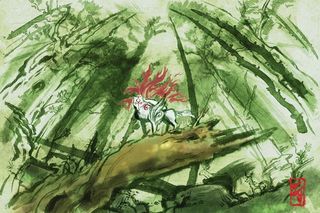Usually constrained to the dusty confines of academic musings on aesthetics in film criticism, auteur theory contends that movies reflect the personal vision of the director (and in some cases the producer) as the work's true author. It's the idea that despite the mass of people involved with the production of a movie, elements of the "auteur's" personal stamp of style can be identified throughout their body of work.
Today, the idea of the director as the creative driving force behind films is hardly foreign to mainstream audiences. Think of Quentin Tarantino's penchant for indulgent dialogues, pop culture references, and graphic violence - and the way we've come to expect these things from the films he directs.
Over the years, this trend - to identify an individual as the primary author of a product produced by many - has extended to the game industry, where designers and producers have achieved celebrity status.
So who are the Kubricks, Lynches, and Hitchcocks of games? What are their trademarked signatures of style? And is there really such a thing as a game auteur?

Atsushi Inaba
Games of Fame: Viewtiful Joe, Viewtiful Joe 2, Viewtiful Joe: Red Hot Rumble, Okami, God Hand, Steel Battalion, and Phoenix Wright: Ace Attorney.
Signature of Style: Sometimes an auteur's work can be defined by what they're not, and in Atsushi Inaba's case, the titles where he's overseen production are rarely conventional. While heading Clover Studio, Inaba has been known to give his directors and staff the freedom to make the kinds of games they wanted, and for fighting hard for the staff members he felt were best for his projects.
Whether you're talking about the original wood-cut, water color aesthetics of Okami, Viewtiful Joe's representation of a Westerner's perception of Japanese popular culture, or God Hand's B-movie sense of humor, titles where Inaba has overseen production thrive with some never-before-seen element and tend to be a ton of fun.

